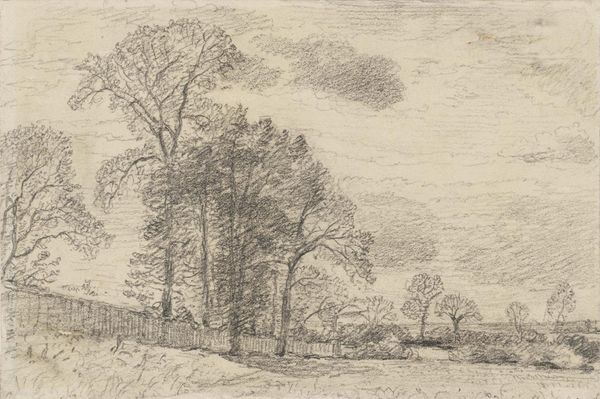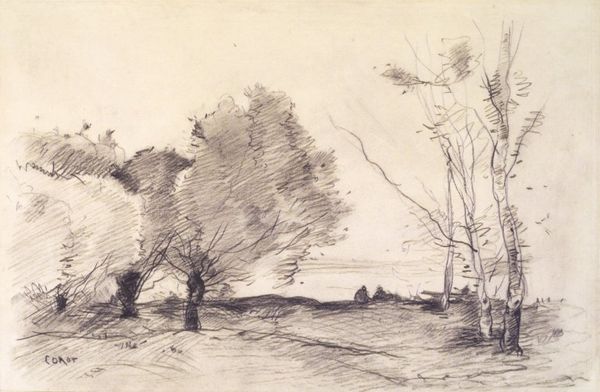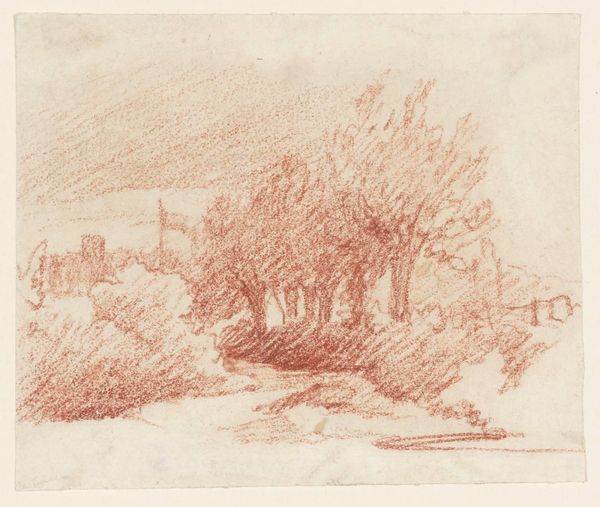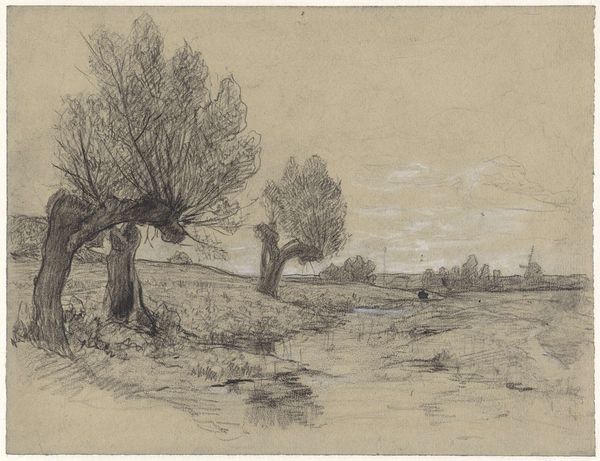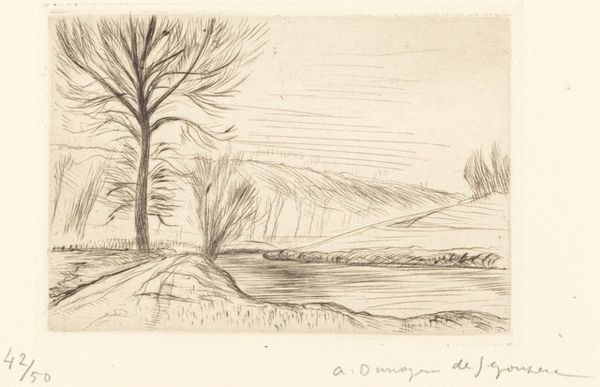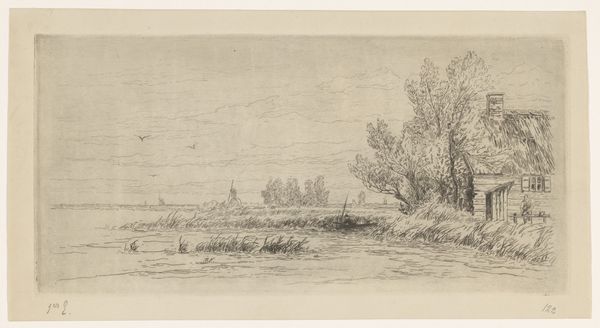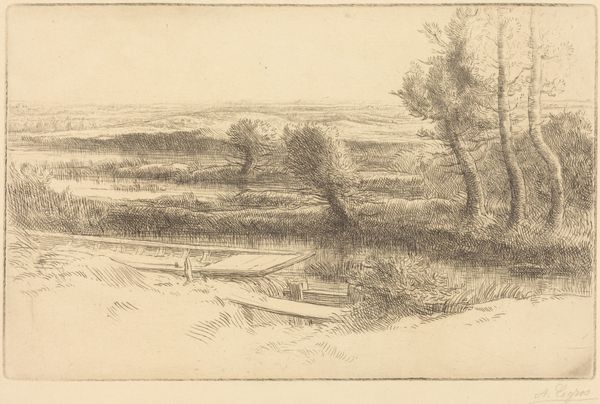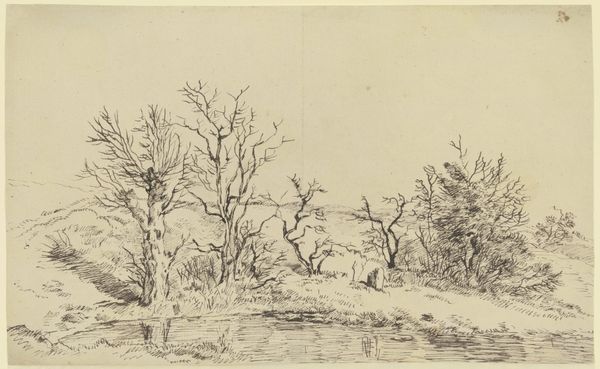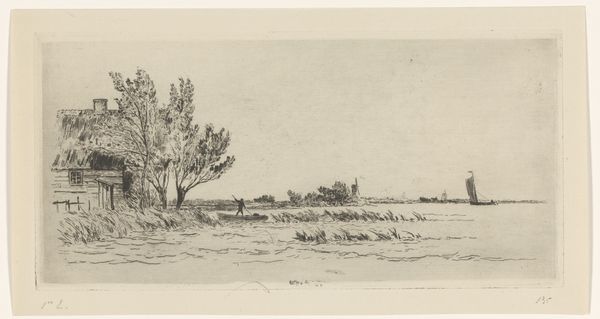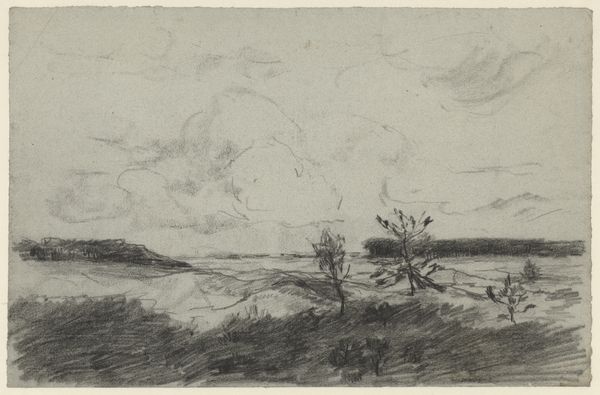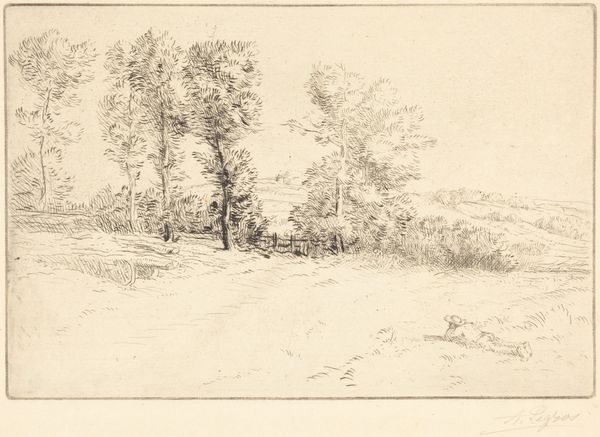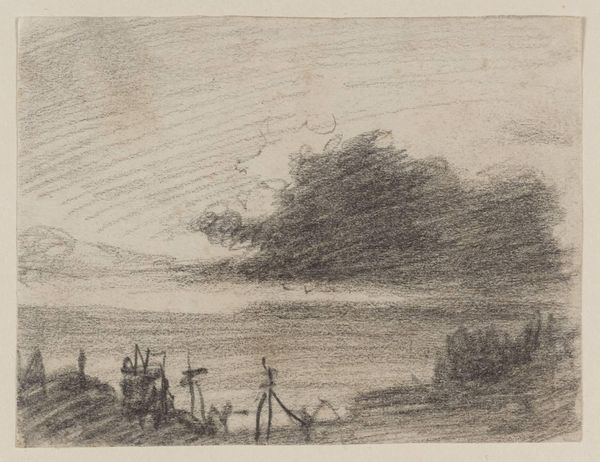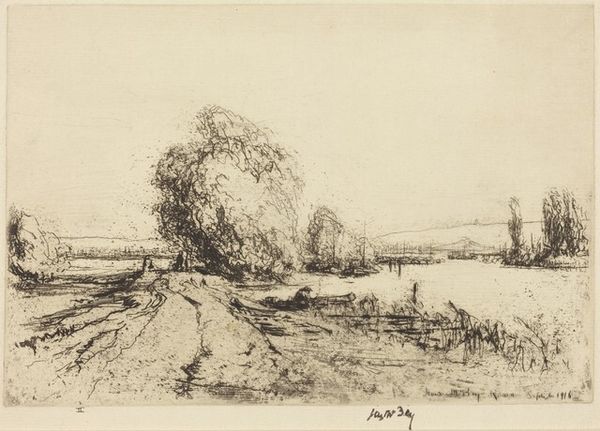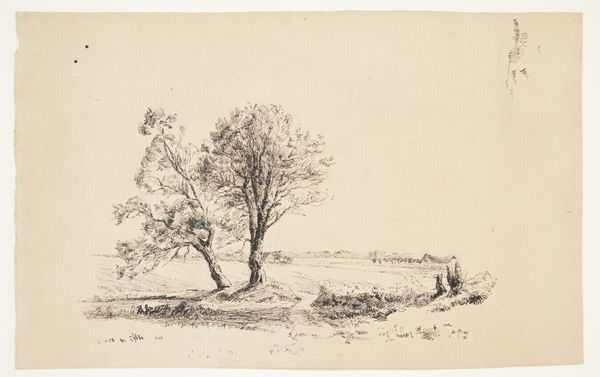
print, etching, graphite
# print
#
etching
#
pencil sketch
#
landscape
#
expressionism
#
graphite
Copyright: National Gallery of Art: CC0 1.0
Curator: So, we have here Edvard Munch’s "Norwegian Landscape," likely created as an etching between 1908 and 1909. It looks like a pencil sketch on first glance. Editor: Austere. The landscape feels sparsely inhabited, more a space of psychological projection than a scene in the world. The skeletal trees remind me of winter closing in, even if it isn’t visually obvious in the print itself. Curator: Precisely. Etching as a medium suited Munch’s expressionistic bent, its inherent linearity lending itself to that raw, exposed feeling. Looking closely, the scratching almost vibrates, no? There’s little embellishment, mainly simple graphite strokes that construct the land, and an economy that makes it deeply affecting. Editor: It’s that very economy that I find interesting. Look at how much empty space he’s included, forcing us to confront not just the scene, but the materiality of the paper itself. There's a rough quality too. This isn't the pristine art object but a working piece, direct from the hand of the artist. I'd love to know the kind of press and acids were used, how readily available they were, and what part these industrial components played. Curator: Always the nuts and bolts for you, eh? While that’s important, for me, it evokes a deeper loneliness—that almost primal connection between the figure of the artist and the northern landscape, so critical to his sensibility. And even if Munch never wrote a line in pencil, one has to see here his deep familiarity with graphic works! Editor: I won’t deny its emotional impact. The sketch's hasty, almost frantic marks definitely amplify the melancholy feel. It does strike me though that these Expressionists and Symbolists owe an enormous debt to the printers and ateliers that were making increasingly daring material choices. Curator: Choices that ultimately helped convey a uniquely individual vision. The kind you might see while staring out a rain-streaked window on a slow moving train. Editor: Or pouring over accounts in a specialist supplier's archive from 1907. Both have a beauty to them.
Comments
No comments
Be the first to comment and join the conversation on the ultimate creative platform.
